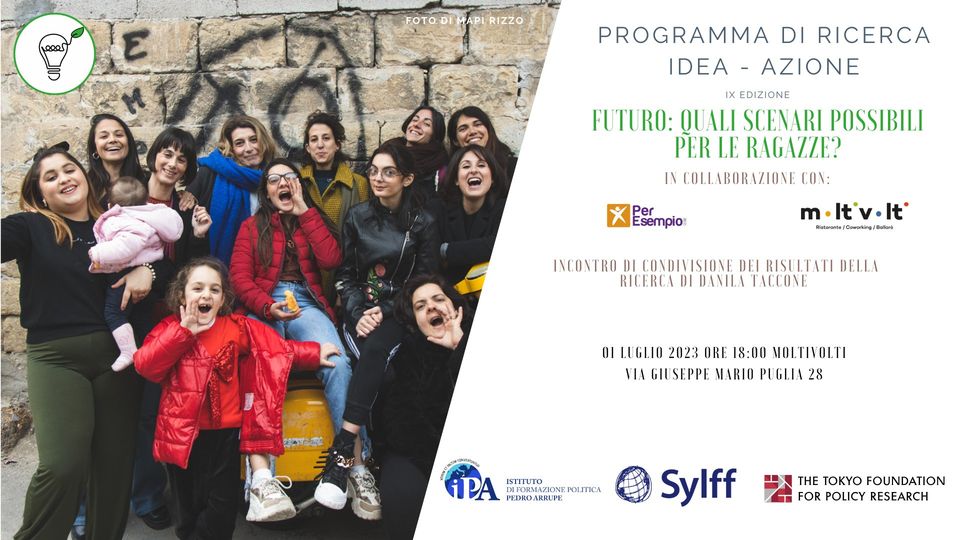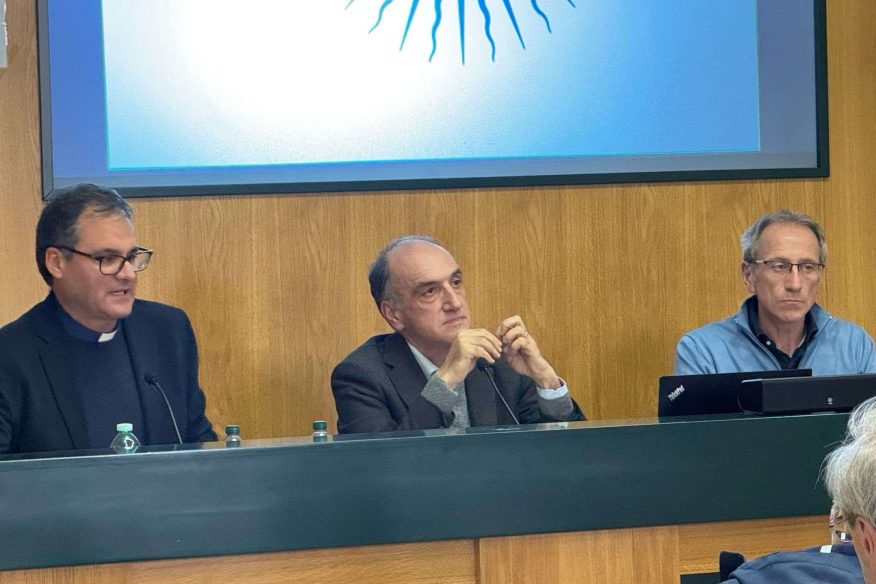Idea-action: listening and planning for the territory

who participated in the 9th edition of the “Idea-Action” research programme promoted by the Pedro Arrupe Institute for Political Education.
For ten years, in fact, through ‘Idea-Action’, a non-academic approach has been proposed that is strongly linked to the needs of the city within the framework of concrete actions for improving the quality of life of the various urban communities.
A working method
“The aim of Idea-Action is to be a working system,” Fr. Gianni Notari, director of the Arrupe Institute explains, “to understand that, before any government action or concrete action within a reality is taken, it is necessary to get to know the people who will be directly affected by this action. This puts the researcher in a real listening attitude to the questions put forward in order to identify ways that can renovate the territory. It is a question of proposing perspectives that have real spin-offs for a concrete regeneration of the city. At the end, during the meetings, the researcher presents the results of the research by making his proposals and discussing them with civil society. The message we want to get across is that a good government must listen deeply to the people with whom it can work out perspectives for the renewal of the territory’.
Four meetings in Palermo and one in Catania are being held between 27 June and 28 July, with the participation of representatives of the third sector, stakeholders, citizens, institutional representatives, civil society, professionals and science tutors from various Italian universities (Turin Polytechnic, La Sapienza, Roma Tre, Lumsa Rome and the University of Padua). The Objectives are to share the final results of the research with the territorial communities, presenting the actions undertaken and the possible social spin-offs that will emerge from the meetings.
Docks and second-hand market
The first meeting, on 27 June, with Federico Prestileo dealt with urban marginality and the renovation of Palermo’s Sant’Erasmo waterfront. Barbara Pizzo, associate professor at the Department of History, Design and Restoration of Architecture at La Sapienza University in Rome participated in the meeting. In her research, she studied the results of the renovations made to the public space in the Sant’Erasmo suburb that recently changed its appearance. “I looked at the redesigning of the spaces of the Sant’Erasmo docks,” Federico Prestileo said. “At the moment, we are witnessing forms of embellishment of the place aimed at a consumerist enjoyment of tourists and citizens; so far, in fact, there has been no dialogue with the people who live in this seaside village. Let us ask ourselves, then, how far the institutions and other realities of the village are still detached from the people who live there every day and who have very specific needs. A social laboratory should be set up to understand what is happening in order to foster a constructive dialogue that also looks at improving the residents’ living conditions’.
On 30 June, at 11 a.m., in Via Nunzio Nasi in the Albergheria, Francesco Montagnani spoke about his Idea-Action where the tutor Silvia Crivello participated. The research focuses on the second-hand market in the Albergheria where, for some years now, a process of enactment has been in progress to entrust the management of the area to the Sbaratto association. ‘I focused on this second-hand market,’ Francesco Montagnani said, ‘trying to bring together the anthropological and ecological perspective through the value of recycling, reuse and sound urban policy. I listened to the people in the market where there are very complex dynamics. In the meantime, the proposal is to favour a bridge of interaction and confrontation of the people of the market and the associations with the institutions in order to envisage concrete interventions that look towards a full integration of this reality’.
Borgo Vecchio and community concierge
On 1 July, it was Danila Taccone’s turn, who together with tutor Simona De Stasio, met the citizens in the afternoon in Moltivolti, after the morning walk in Borgo Vecchio where her research took place. This was a survey on the awareness of rights, skills and vision of the future addressed to girls living in Borgo Vecchio; the aim is to facilitate a narrative process based on the use of new technologies.
On 12 July, Luca Aiello spoke about ‘Neighbourhood Plans’ in Catania together with tutor Leonardo Becchetti. As part of ‘Idea – Action’, he is conducting a study on community concierge, in the popular San Berillo district, as a tool to trigger economic, social and environmental sustainable entrepreneurial routes.
Migrant Narratives
On 28 July, there will be Zeno Franchini, at Al Fresco Giardino bistrot, with tutor Ferdinando Fava. The project aims to analyse the impact of narratives produced in Palermo, as a landing place for migrants, on the city itself and its social realities. “I listened to the foreign communities with a focus on Ballarò,’ Zeno Franchini said. ‘For years, as a designer, I organised craft workshops with foreigners. In the research, I tried to understand how Ballarò could perform this function with the perspective of a greater involvement of foreign communities. I also tried to foster bridges of greater dialogue and exchange between associations and immigrants. Then, on an operational level, I am working on a project that envisages long-term renovations in the public space of the Albergheria’.
Arrupe in the Sylff Network
All research works produced within “Idea-Action” can be accessed at the “Fr. Angelo Carrara SJ” Library. The “Idea-Action” research programme, conceived and coordinated by Massimo Massaro, is financed by the Sylff Programme of the Tokyo Foundation for Policy Research, which supports the development of a new generation of researchers, with high-ranking leadership potential, interested in a real transformation of society. Since 1992, the Arrupe Institute, the only one in Italy, has been part of the international Sylff network, currently consisting of 69 universities and research centres in 44 countries worldwide.
